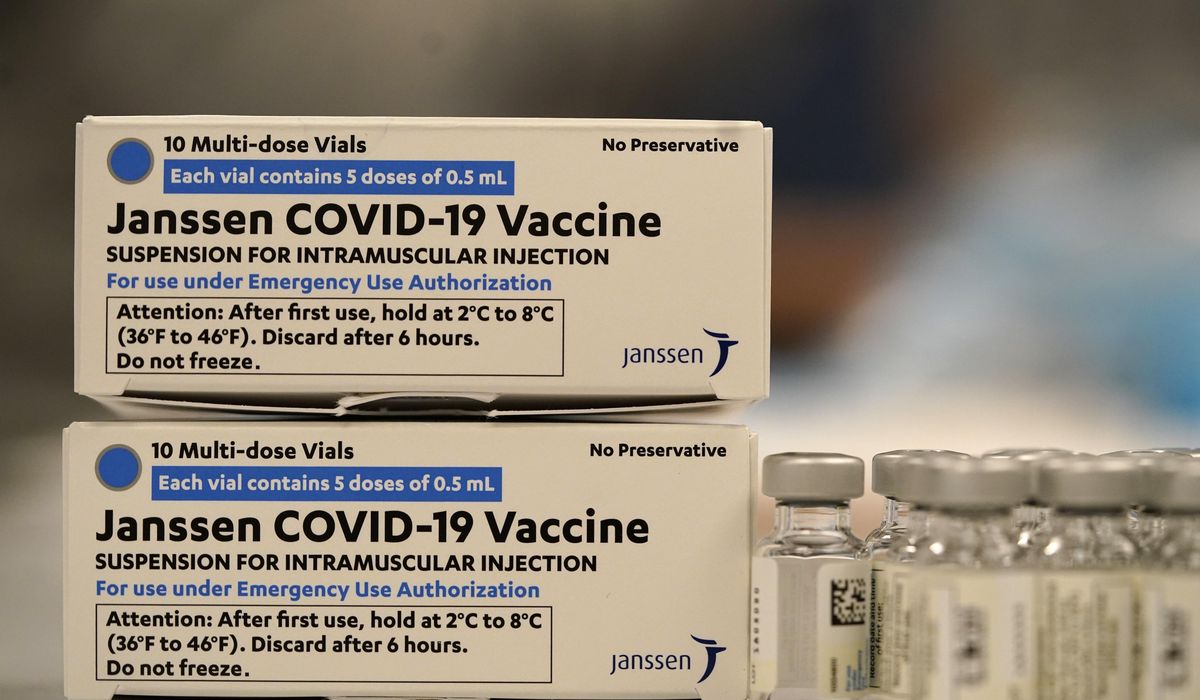
Drugmaker Johnson & Johnson applied Tuesday for emergency approval of a booster dose to its one-shot COVID-19 vaccine, while AstraZeneca said it will seek authorization for a groundbreaking antibody treatment to prevent COVID-19 in persons at high risk of disease.
The submissions are part of a flurry of activity at the Food and Drug Administration, which is vetting data on vaccine boosters and will review Merck’s application for pills that staved off hospitalization and death from COVID-19 in clinical trials.
J&J’s booster application is based on a study that showed a second dose increased protection against symptomatic disease from 74% to 94%.
“We look forward to our discussions with the FDA and other health authorities to support their decisions regarding boosters,” said Mathai Mammen, global head of research and development at Janssen, a pharmaceutical arm of J&J. “At the same time, we continue to recognize that a single-shot COVID-19 vaccine that provides strong and long-lasting protection remains a crucial component to vaccinating the global population.”
Roughly 15 million recipients had been left wondering when they’d be included in the booster conversation.
President Biden announced in August a plan to provide extra doses to recipients of the Pfizer-BioNTech and Moderna versions, which use different technology, although regulators scaled back his ambitions.
The FDA approved a Pfizer booster for subgroups, namely seniors and at-risk persons, and Moderna’s application was working through the pipeline ahead of J&J’s announcement.
AstraZeneca, meanwhile, said its antibody-drug combination cut the risk of symptomatic disease by 77%. Three-quarters of persons in the trial had underlying health conditions.
The AstraZeneca drug is notable because it is a preventive treatment for COVID-19 that can help a subset of at-risk people who don’t see much benefit from vaccines.
“Vulnerable populations such as the immunocompromised often aren’t able to mount a protective response following vaccination and continue to be at risk of developing COVID-19. With this first global regulatory filing, we are one step closer to providing an additional option to help protect against COVID-19 alongside vaccines,” said Mene Pangalos, executive vice president for AstraZeneca’s biopharmaceutical research and development.
Antibody cocktails from Regeneron and Eli Lilly have been available for months but are used after someone contracts the virus to try and prevent hospitalization.
Merck, meanwhile, said it will seek the emergency authorization of a course of pills that cut the risk of hospitalization or death in half in clinical trials.
Pills would be easier to administer than antibody cocktails, which often require intravenous treatment and doctor supervision.
Federal officials warned the promising pills shouldn’t be viewed as a replacement for vaccines, saying the shots are an inexpensive intervention and it is best not to risk infection in the first place.







